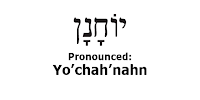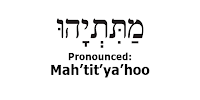The Bread of the Sabbath
Challah, known to some as "Jewish bread," is one of the essential elements of the Shabbat table. Each of the three Shabbat meals begins with the blessing over two loaves of Challah, which are then cut and shared with all present.
Bread has special significance in Judaism. It represents the great potential that God put in the world. Bread begins as a seed, grows into wheat (which is still inedible), is winnowed and ground before it is transformed into flour and dough, which is then baked into bread. All this from a small kernel of wheat! Because of its stature as the “staple” food, the blessing over bread is recited at the beginning of the meal and "covers" all further foods eaten during the meal*.
There is, however, special significance to the blessing of ha’mo’tzee (the bread blessing) when recited over two loaves at the Shabbat table. The two loaves serve as a reminder that in the wilderness God provided manna (the heavenly bread) every day except on Shabbat. Throughout the week, the Israelites collected only enough manna for a single day, but on Fridays they collected a double portion to last through Shabbat. The complete loaves of the Shabbat table are known as lechem mishneh (double bread).
While the word challah brings to mind distinctive braided loaves, the shape is not a requirement. As long as the two loaves of bread are whole (they could even be two uncut rolls or two pieces of matzah), then the mitzvah of lechem mishneh is fulfilled. The braiding of the challah, however, has taken on symbolic significance. For instance, making the ha’mo’tzee blessing on two loaves of six-strand challah is a beautiful symbol of the unity of the Jewish people. Each challah strand is representative of one of the tribes of Israel. When the two loaves are held together, all twelve tribes are represented at the Shabbat table.
*At a meal without Kiddush at which one has eaten bread, a separate blessing is made on wine consumed during the meal. If one does not eat bread, separate blessings are recited on each of the items eaten, such as fruit, vegetables, grains etc.
Twebrew School: Shabbat is brought to you on behalf of Shabbat Across America and Shabbat Across Canada, the only cross-continental celebration of Shabbat. The fourteenth annual SAA/C will take place on March 5, 2010. To learn more, click here.
Copyright © 2010 National Jewish Outreach Program. All rights reserved.
Bread has special significance in Judaism. It represents the great potential that God put in the world. Bread begins as a seed, grows into wheat (which is still inedible), is winnowed and ground before it is transformed into flour and dough, which is then baked into bread. All this from a small kernel of wheat! Because of its stature as the “staple” food, the blessing over bread is recited at the beginning of the meal and "covers" all further foods eaten during the meal*.
There is, however, special significance to the blessing of ha’mo’tzee (the bread blessing) when recited over two loaves at the Shabbat table. The two loaves serve as a reminder that in the wilderness God provided manna (the heavenly bread) every day except on Shabbat. Throughout the week, the Israelites collected only enough manna for a single day, but on Fridays they collected a double portion to last through Shabbat. The complete loaves of the Shabbat table are known as lechem mishneh (double bread).
While the word challah brings to mind distinctive braided loaves, the shape is not a requirement. As long as the two loaves of bread are whole (they could even be two uncut rolls or two pieces of matzah), then the mitzvah of lechem mishneh is fulfilled. The braiding of the challah, however, has taken on symbolic significance. For instance, making the ha’mo’tzee blessing on two loaves of six-strand challah is a beautiful symbol of the unity of the Jewish people. Each challah strand is representative of one of the tribes of Israel. When the two loaves are held together, all twelve tribes are represented at the Shabbat table.
*At a meal without Kiddush at which one has eaten bread, a separate blessing is made on wine consumed during the meal. If one does not eat bread, separate blessings are recited on each of the items eaten, such as fruit, vegetables, grains etc.
Twebrew School: Shabbat is brought to you on behalf of Shabbat Across America and Shabbat Across Canada, the only cross-
Copyright © 2010 National Jewish Outreach Program. All rights reserved.


Comments
Post a Comment